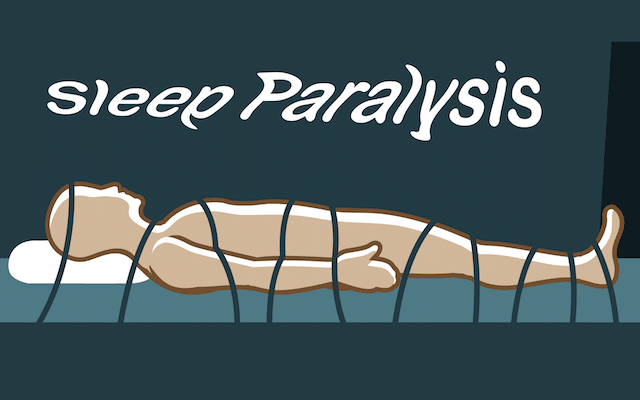Dreams: What Are They and Why Do We Have Them?
Brief summary: Dreams are images, thoughts, or feelings that occur during sleep. While many people experience dreams, scientists are still studying why we dream. Some believe that dreams help us process emotions and experiences, while others think they might be a way to practice problem-solving. Dreams can be vivid, strange, or even scary, and understanding them can be both fascinating and confusing.
What Are Dreams?
Dreams are something that you may have when you sleep. They can be images, sounds, or feelings that seem very real at the time. Sometimes dreams can be pleasant, full of fun adventures or beautiful scenes. Other times, they might be nightmares that can wake you up feeling scared.

The Different Stages of Sleep
When you sleep, your brain goes through different stages. In one of these stages, called REM (Rapid Eye Movement) sleep, most dreams happen. During REM sleep, your brain is very active, almost like when you’re awake. This stage of sleep makes up about 25% of your sleep time.
Why Do We Dream?
The question of why we dream is still a mystery. Scientists and researchers are working on figuring out the reason, but there’s no definite answer yet. Here are some theories:
Processing Emotions
According to some experts, dreams might help you sort through feelings and emotions. If you had a rough day or a joyful experience, dreaming about it might be a way for your mind to make sense of it all.
Solving Problems
Some people believe that dreams can be a place where your brain works on problems. You might be working on a tough math problem, and then you dream about it and wake up with an answer. It’s like your brain keeps working even while you’re asleep.
Connecting Memories
Another idea is that dreams help your brain connect memories. While you’re dreaming, your brain could be linking old memories with new ones, helping you learn and remember things.
How Can You Remember Your Dreams?
Sometimes, you might wake up and recall a dream perfectly. Other times, you can’t recall it at all. If you want to get better at recalling your dreams, try these tips:
Keep a Dream Journal
Write down your dreams as soon as you wake up. The more details you jot down, the more likely you’ll be able to recall them later.
Talk About Your Dreams
Tell a friend or family member about your dream. Sometimes, talking about it helps you remember it better.
Don’t Rush Out of Bed
If you jump out of bed as soon as you wake up, you might forget your dream. Try to wake up slowly and think about your dream before starting your day.
Frequently Asked Questions
Can You Control Your Dreams?
Some people can control their dreams, a phenomenon called lucid dreaming. If you realize you’re dreaming while you’re still in the dream, you might be able to change what happens. There are techniques and practices to learn lucid dreaming if you’re interested.
Why Do Some People Remember Dreams and Others Don’t?
Not everyone recalls their dreams, and that’s normal. If you wake up during the REM stage of sleep, you’re more likely to remember a dream. Factors like stress, sleep quality, and even genetics might affect how often you remember dreams. If you want to recall them more often, keeping a dream journal can help.
Are Nightmares Dangerous?
Nightmares are dreams that can be scary or disturbing. Although they might leave you feeling shaken, they’re generally not harmful. If nightmares become a regular problem and disrupt your sleep, it might be a good idea to talk to a healthcare provider to make sure there’s no underlying issue.
Can Food Affect Your Dreams?
You might have heard that eating certain foods before bed can cause strange dreams. While there’s no strong scientific evidence to support this, eating a large meal or spicy foods close to bedtime might affect your sleep and, in turn, your dreams. It’s best to avoid heavy meals right before sleep if you want peaceful dreams.
What Is Lucid Dreaming and How Can You Do It?
Lucid dreaming is when you realize you’re dreaming while still in the dream. Some people can control the dream once they know they’re dreaming. If you want to try lucid dreaming, there are techniques like reality checks and keeping a dream journal that might help. It takes practice and patience, so don’t be discouraged if it doesn’t happen right away.
5. Can Dreams Predict the Future?
Sometimes, dreams might feel like they’re telling the future, especially if something in the dream later happens in real life. However, according to scientific research, dreams predicting the future are likely a coincidence. Your brain is great at finding patterns, so if something in a dream seems to come true, it’s probably because your brain is linking the dream to a real-life event.
In conclusion, dreams are a natural part of sleep that is still not fully understood. They can be mysterious, enlightening, or downright terrifying, but they’re a universal experience that humans share. Whether you see them as a tool for emotional processing or a playground for your mind, dreams are an intriguing aspect of our lives.
Further Reading: 10 Common Dreams and What They Actually Mean






